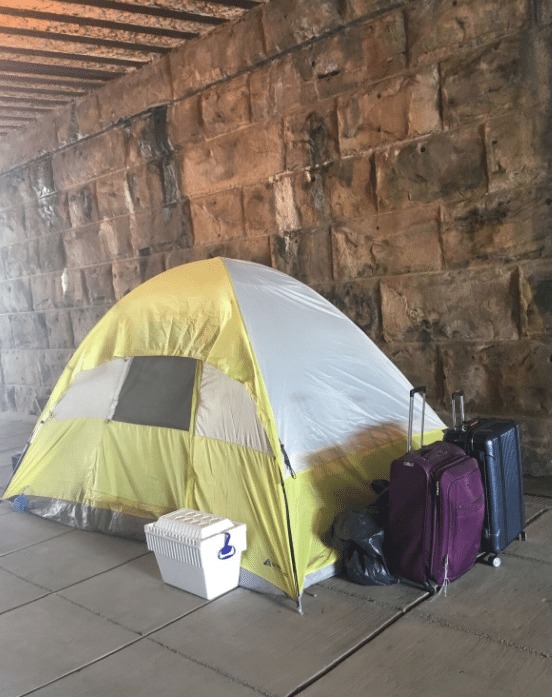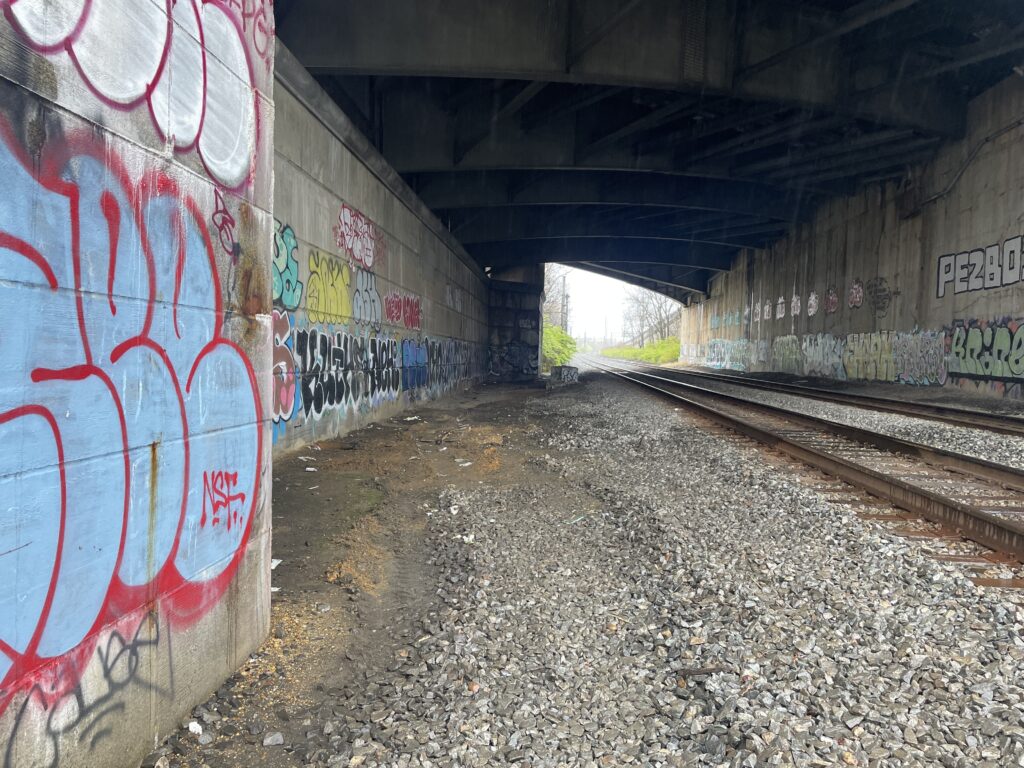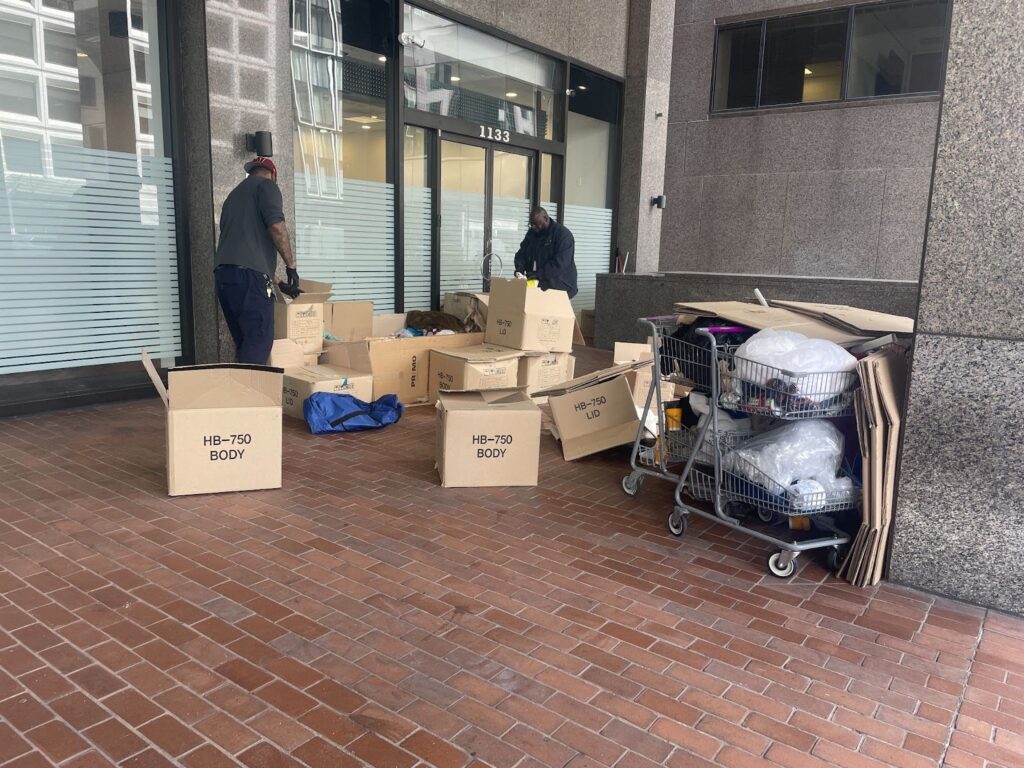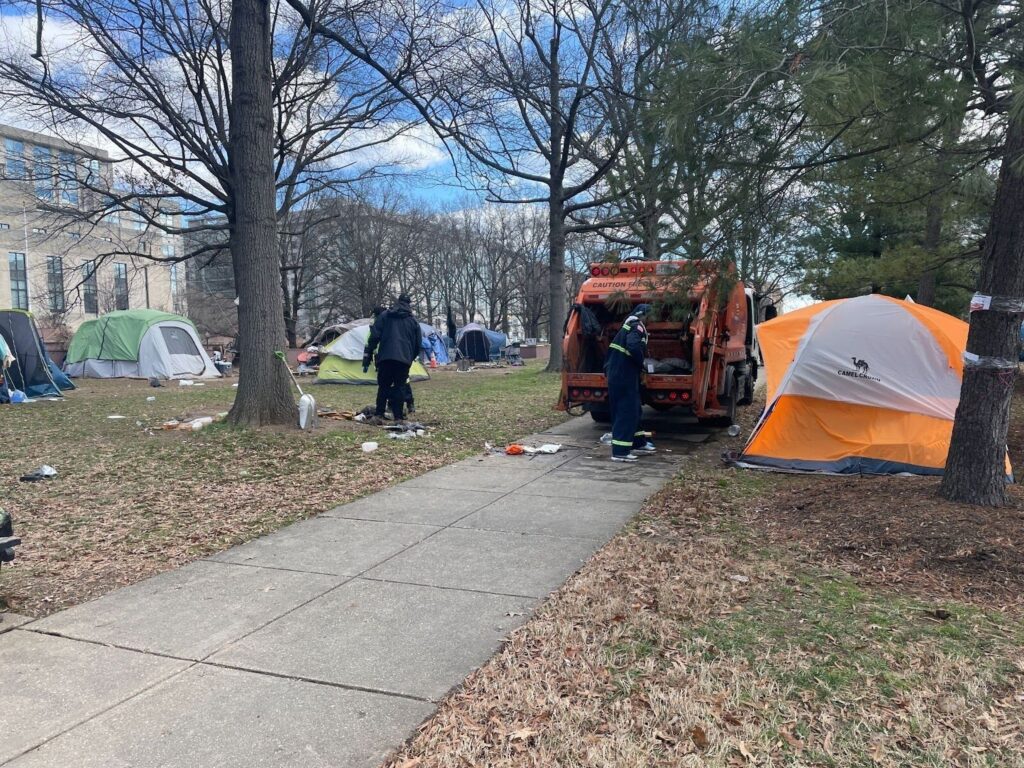One month to the day after the mass eviction of a tent community under the 2nd Street NE Metro bridge, the Deputy Mayor of Health and Human Services or the Interagency Council on Homelessness administered another sweep of the area.
Signs hung at the site last month specified that District government retains the right to maintain the area without notice for two weeks following the initial cleanup date. After that, the city’s encampment protocol starts over, and two-week notices will be required before any further action is taken. In contrast to the tear-down of more than a dozen tents last month, only a few stood under the bridge two days before the scheduled July 20 cleanup. According to camp residents, outreach teams came through on the 19th to inform them they would be forced to relocate. Some left on their own accord.
Only four people were still living in tents on the public sidewalk the morning of July 20, but it was crowded with onlookers. Several outreach representatives from D.C. government also arrived to offer water, procedure on days the Homeland Security and Emergency Management Agency declares a heat emergency, as they had on July 20. Several young lawyers observed the whole ordeal, and a police officer rode through on a motorcycle.
Joyce had been living under the bridge before last month’s cleanup and returned that evening to set her tent back up. She was still packing the morning of the most recent cleanup. She said that she appreciates the city’s efforts and watched as workers sprayed down the underside of the bridge. The smell of urine from her neighbors under the bridge was so strong that morning that she felt sick to her stomach, Joyce said in an interview with Street Sense.
She was able to keep her spot at M and 1st Street NE because she does not use a tent. Local ordinances do not prohibit inhabiting public space, but outlaw the use or construction of a “temporary abode,” such as tents, trailers or automobiles.
Instead, Joyce sets up a lawn chair somewhere sheltered from the rain and wind, such as under the Metro bridge.
She said she avoids city shelters, because she doesn’t like crowds or having to deal with rodents and insects. But she also doesn’t want to waste her time and energy being chased around the city for using a tent.
Joyce’s unsheltered life doesn’t go unchallenged: representatives from the city-funded nonprofit Pathways to Housing stop by daily to check on her.
“I know it’s her job to try to get me to go to shelter, but it’s my job to tell her no,” Joyce said of a Pathways outreach worker present for the July 20 sweep. Joyce said she has been staying under the bridge for the past six years.








